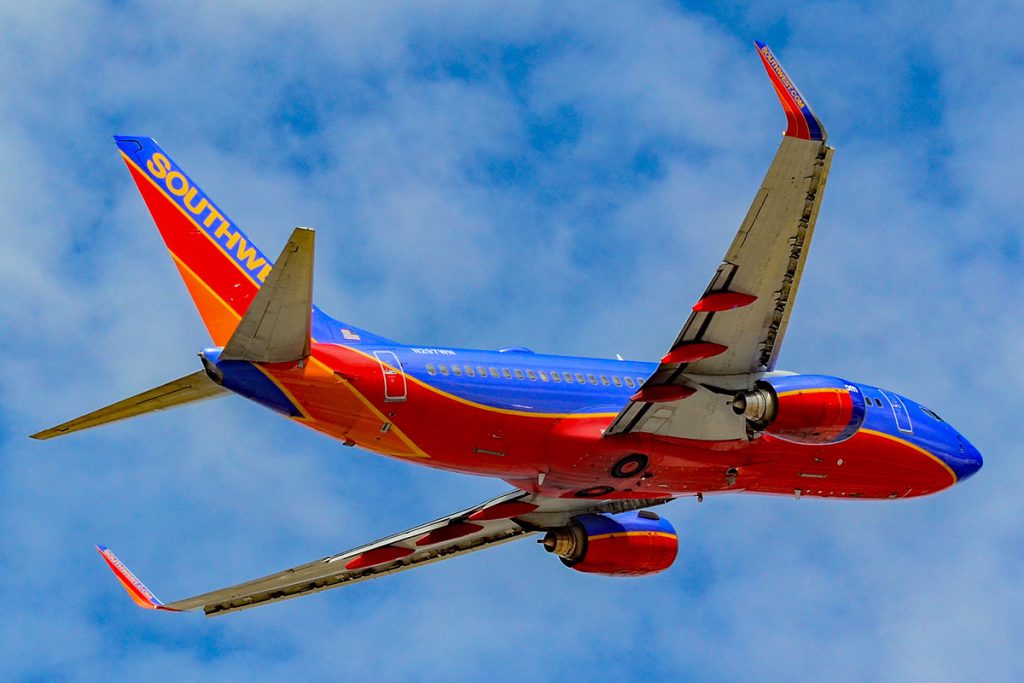Southwest Airlines has recently acquired a startup called Saffire Renewables, which focuses on producing renewable ethanol that can be used to create jet fuel. This acquisition is part of Southwest’s efforts to replace 10% of its total jet fuel consumption with sustainable aviation fuel (SAF) by 2030, amounting to around 200 million gallons per year. Saffire Renewables, based in North Dakota, utilizes corn stover, the leftover material from corn plants post-harvest, to produce ethanol. It takes one ton of dried corn stover to create 50 gallons of jet fuel, and the technology used by Saffire was developed at the U.S. Department of Energy’s National Renewable Energy Laboratory, with an exclusive license issued to Saffire.
Southwest Airlines initially invested in Saffire during the first phase of its pilot program in 2022 and has now fully acquired the startup. Saffire plans to establish pilot plant operations at the Conestoga Arkalon Energy ethanol facility in Kansas, where they will convert 10 tons of corn stover into ethanol daily. This ethanol will then be transformed into jet fuel by LanzaJet, another startup in which Southwest invested $30 million to further develop and scale its low-carbon ethanol to jet fuel technology. LanzaJet intends to open a production facility in the U.S., with Southwest as its anchor customer. Southwest’s goal is to build its own ecosystem for renewable jet fuel to ensure more guaranteed access as production is increased.
The efforts to transition to sustainable aviation fuel are part of a wider strategy to reduce carbon emissions in the aviation industry. Alongside measures like hybrid electric engines, the adoption of SAF is projected to account for 65% of the actions necessary for airlines globally to achieve zero emissions by 2050, as set by the International Air Transport Association. To reach this goal, the industry would need to produce 118.9 billion gallons of SAF by 2050, highlighting the significant role that renewable jet fuel plays in the broader sustainability objectives of the aviation sector. By investing in startups like Saffire Renewables and LanzaJet, Southwest Airlines is positioning itself as a leader in sustainable aviation practices and is actively working towards reducing its environmental footprint.
Southwest Airlines’ subsidiary, Southwest Airlines Renewable Ventures, was established in February to focus on integrating renewable jet fuel into the airline’s operations. Acquiring Saffire Renewables is a strategic move to secure a sustainable source of jet fuel, utilizing corn stover as a feedstock. Through this acquisition, Southwest aims to play a key role in advancing the production and adoption of SAF in the aviation industry. By partnering with organizations like LanzaJet and investing in innovative technologies, Southwest is demonstrating its commitment to sustainable practices and reducing its carbon footprint, aligning with broader industry goals for emission reductions and environmental sustainability.
The use of ethanol derived from corn stover as a feedstock for renewable jet fuel production represents an innovative approach to sustainable aviation. By converting agricultural waste into a viable source of fuel, Saffire Renewables and Southwest Airlines are contributing to the circular economy and reducing reliance on traditional fossil fuels. The partnership between Saffire, Southwest, and LanzaJet highlights the collaborative efforts within the aviation sector to drive innovation and develop alternative fuel sources. As the industry continues to prioritize sustainability and emission reductions, investments in renewable jet fuel technologies are crucial steps towards achieving ambitious environmental targets and ensuring a more sustainable future for air travel. Southwest’s holistic approach to building its own ecosystem for renewable jet fuel underscores its commitment to advancing sustainable aviation practices and leading the way towards a greener aviation industry.


